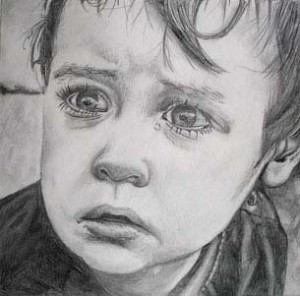Anna had the Guts to oppose Putin. The book is about him and the current situation in Russia. Robert Cottwel is very negative about the way the West is treating Russia. They need the oil and gas and don’t see that a possible world-wide war between Russia and the West is near.
The story about Russia is very frightening. Putin is a brilliant manipulator who is combining all his old skills (KGB), his almost total power and the underlying aggression in Russia to “Take Revenge”.
I want to focus on one aspect in this article. It is about Kayrov the President of Chechnya. He is appointed by Putin. Anna interviews him. She finds out that he is completely crazy. He loves to kill and torture and he is very open about that.
Later in the article we find a small poem that was published in Russian Newspapers. The poem is about taking over Estonia. This will be easy “Who in NATO cares? .. They are Cowards,… in the end we will strike and make a deal with those greedy pigs. Who will sell their mother for gas”.
With this in mind I thought about the Ethics of War.
Question 1: What is Ethics?
The definition of Ethics is simple: Things normal people don’t do in a normal situation. War is not normal so you would say ethics is not possible but soldiers are normal people that are trained to experience war as normal. Soldiers are tested and trained to behave normal. Crazy people are not hired. A soldier can become crazy because of the war-situation and kill and torture innocent people. We, in The West, are doing are utmost best to prevent this.
Question 2: What is Crazy (Not Normal)?
This question is easy to answer because craziness is like all diseases standardized by psychiatrist. It is just a matter of answering a few questions and the treatment and the pills comes out.
A theory that explains mental illness is called Interpersonal Theory (See Horowitz.L.M, (2003), Interpersonal Foundations of Psychopathology).
People interact and in the interaction they show expected behavior. If a person shows standardized behavior (he is not flexible) he is “MAD”.
An example of highly standardized not flexible behavior is Paranoid. People always react according to the same rules.
Crazy people are people that are like computers; they are programmed. They don’t see, feel, or hear the Other. They are alone in the universe. They love to kill and torture because they and not able to be empathic. They look at their victims and have fun. They hate their victims because they look like greedy pigs who will sell their mother for gas and they love their mother.
Why are the soldiers of NATO cowards? The answer is simple because they are normal and most of them are empathic. They flip when they realize what the others have done to their friends, their comrades.
Now I know why the story about Russia is frightening. Putin is mad. Perhaps he is even paranoid. He wants to restore the old Russian Empire. Like all his Predecessors.
He knows that the West is totally dependent on energy and he plays with them. He gives the greedy pigs the food they want. He knows they will negociate to keep their wealth.
What he does not realize is that in the West people can become crazy and some of them are in the Army. When they are brutallized till the end they flip and they will use non-normal highly destructive weapons. If this happens we are in Armageddon.
Perhaps we have a chance when we change our selection policy of soldiers and select real crazy people.
This will frighten Putin.
 Humans are the most advanced toolmakers in nature. The main reason is that they are the less specialized organisms. They need tools to survive.
Humans are the most advanced toolmakers in nature. The main reason is that they are the less specialized organisms. They need tools to survive.